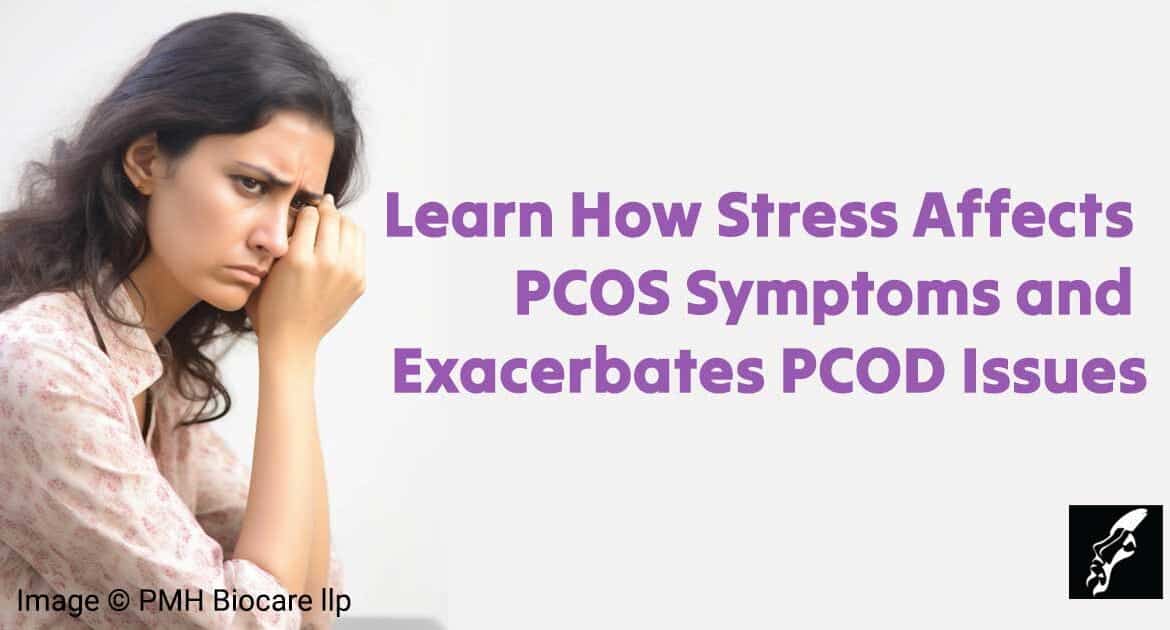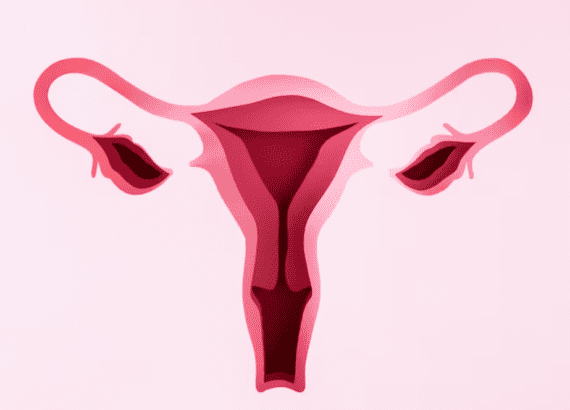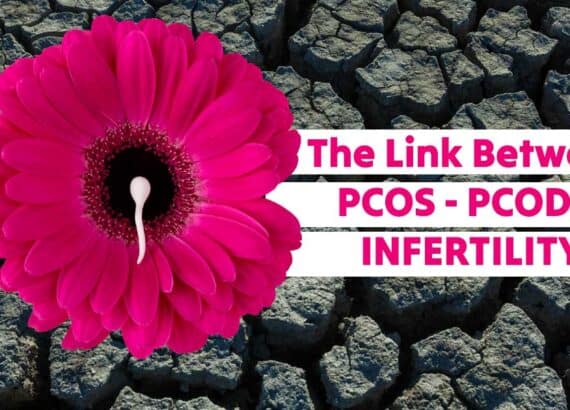Stress and PCOS Symptoms: Understanding the Connection

Polycystic Ovary Syndrome (PCOS) is a common hormonal disorder that affects up to 10% of women of reproductive age. It is characterized by the presence of cysts on the ovaries, irregular periods, and excess male hormones. The symptoms of PCOS can range from mild to severe and can include weight gain, acne, excess hair growth, and difficulty getting pregnant.
Stress is a natural part of life, but it can have a significant impact on the symptoms of PCOS. When you are stressed, your body releases hormones such as cortisol and adrenaline, which can affect your menstrual cycle and exacerbate PCOS symptoms.
PCOS is just a bump in the road of your life’s journey. Keep driving
Here are some ways that stress can affect PCOS symptoms:
- Irregular periods : Stress can disrupt your menstrual cycle, leading to irregular periods or even missed periods. This can make it difficult to track your ovulation, making it harder to get pregnant.
- Weight gain : When you are stressed, your body produces more cortisol, which can lead to weight gain. Women with PCOS are already at a higher risk of weight gain, so stress can exacerbate this issue.
- Acne and excess hair growth : Stress can cause an increase in androgens, which are male hormones that can cause acne and excess hair growth in women with PCOS.
- Difficulty getting pregnant : PCOS can make it difficult to get pregnant, and stress can exacerbate this issue by disrupting your menstrual cycle and affecting your hormone levels.
While the exact cause of PCOS is unknown, researchers have identified a link between stress and the development of the condition. In fact, stressful situations at work or home can be a common trigger for PCOS symptoms such as irregular periods, acne, and weight gain. The constant hormonal imbalance can cause anxiety, making it a vicious cycle that’s hard to break.
So, what can women with PCOS do to manage their symptoms and reduce their stress levels? Here are some strategies to consider:
- Prioritize Self-Care : First and foremost, it’s important to prioritize self-care. This means finding ways to manage stress, whether it’s through exercise, meditation, or simply taking a break to do something you enjoy. Remember, taking care of your mental health is just as important as taking care of your physical health.
- Exercise : One of the best ways to reduce stress and improve your overall health is through exercise. Aim for at least 30 minutes of moderate-intensity exercise most days of the week. Whether it’s going for a walk, running, or taking a fitness class, exercise can help regulate hormones, reduce inflammation, and improve insulin sensitivity, all of which can help alleviate PCOS symptoms.
- Practice relaxation techniques : Techniques such as deep breathing, meditation, and yoga can help reduce stress and promote relaxation. Yoga, in particular, is a great way to regulate hormones, reduce inflammation, and improve insulin sensitivity, making it a particularly beneficial form of exercise for women with PCOS. So take some time to slow down, breathe, and focus on yourself.
- Get enough sleep : Sleep is crucial for managing stress and improving PCOS symptoms. Aim for 7-8 hours of sleep per night, and try to establish a consistent sleep routine. Avoiding caffeine and electronic devices before bed can also help promote better sleep.
- Eat a healthy diet : Eating a healthy, balanced diet is key to managing weight and improving PCOS symptoms. Aim to eat plenty of fruits, vegetables, whole grains, and lean protein. Avoid processed foods, sugary drinks, and high-fat foods, which can exacerbate PCOS symptoms.
- Journaling : Journaling is a simple yet effective way to manage stress levels and track PCOS symptoms. By writing down your thoughts and feelings, you can gain a better understanding of your triggers and develop coping strategies to manage them. Additionally, tracking your symptoms can help you identify patterns and make lifestyle changes that can improve your overall health and well-being.
- Meditation : Meditation is a powerful tool for reducing stress levels and improving overall health and well-being. For women with PCOS, it can also help reduce inflammation, which is a common trigger for PCOS symptoms. By practicing mindfulness regularly, you can learn to manage stress and anxiety, regulate hormones, and improve insulin sensitivity, all of which can lead to improved PCOS symptoms.
- Spending time in nature : Spending time in nature is a great way to reduce stress levels and improve overall well-being, which can be particularly beneficial for women with PCOS. Whether it’s hiking, walking, or simply sitting outside, being in nature can help regulate hormones, reduce inflammation, and improve insulin sensitivity, all of which can help alleviate PCOS symptoms.
Conclusion
In conclusion, stress can be a major trigger for PCOS symptoms. However, by prioritizing self-care and finding ways to manage stress, you can improve your overall well-being and alleviate your PCOS symptoms. Remember, taking care of your mental health is just as important as taking care of your physical health. So take some time for yourself and try some of these stress management techniques today!
FAQs
Q: Can stress cause PCOS?
A: No, stress does not cause PCOS. However, it can exacerbate PCOS symptoms and make them more difficult to manage.
Q: Can stress make it harder to get pregnant with PCOS?
A: Yes, stress can disrupt your menstrual cycle and affect your hormone levels, making it more difficult to get pregnant with PCOS.
Q: Can relaxation techniques help improve PCOS symptoms?
A: Yes, relaxation techniques such as deep breathing, meditation, and yoga can help reduce stress and improve PCOS symptoms.




